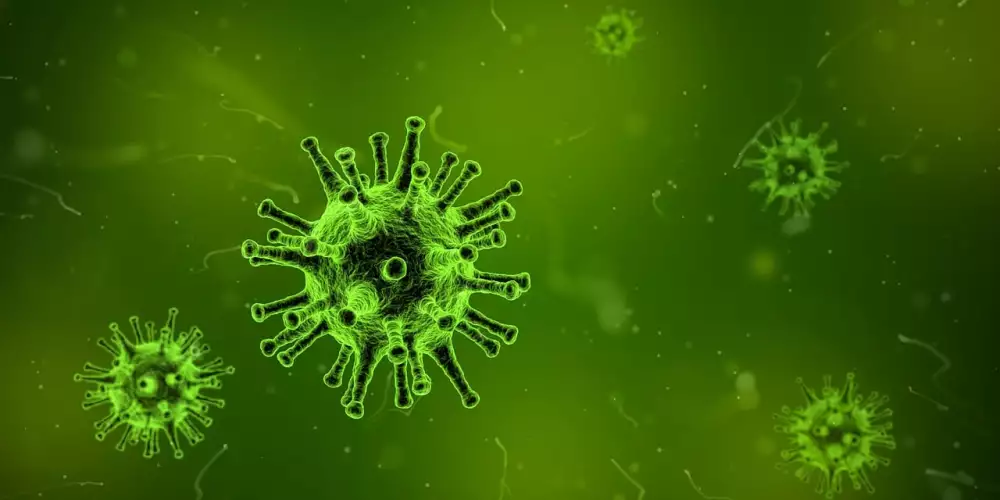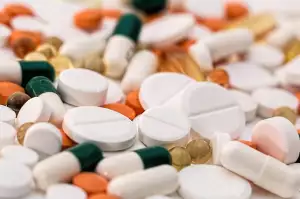Everything you need to know about creatinine values for health

- What are creatinine values and how do they affect health?
- The normal range of creatinine in the body and its importance to kidney function.
- Higher than normal creatinine values and possible causes.
- The importance of regular creatinine monitoring for the prevention and diagnosis of kidney disease.
- How to maintain optimal creatinine values and support kidney health.
- Recommended medical tests and screenings to check creatinine.
- Treatment options and kidney care for elevated creatinine values.
- Preventing kidney disease and maintaining a healthy lifestyle.
- When to seek medical attention if creatinine problems are suspected.
What are creatinine values and how do they affect health?
Creatinine values are a measure of kidney function and an indicator of health status. Creatinine is a waste product that is produced when creatine is broken down in muscle tissue. A normal range of creatinine in the body is important for proper function of the kidneys, which filter and excrete it in the urine. Higher than normal levels may indicate kidney problems or other health conditions. Regular creatinine monitoring is therefore crucial for the prevention and diagnosis of kidney disease.
The normal range of creatinine in the body and its importance to kidney function.
The normal range of creatinine in the body is between 0.6 to 1.2 mg/dl in men and 0.5 to 1.1 mg/dl in women. These values may fluctuate slightly depending on age, gender and body weight. Creatinine is a waste product of muscle metabolism that is formed when creatine phosphate breaks down. Its level is an important indicator of kidney function because the kidneys are the main organ for its excretion from the body. When the kidneys function properly, creatinine is excreted from the body and its level remains stable.
Higher than normal creatinine values and possible causes.
Higher than normal creatinine values may indicate problems with kidney function. There are several possible causes that could lead to elevated creatinine levels in the body. Some of these causes include dehydration, kidney failure, urinary tract infections, or taking certain medications. Other factors, such as excessive physical activity or eating large amounts of protein, can also affect creatinine levels. It is important to seek medical advice and undergo further investigations to determine the exact cause of elevated creatinine levels and to initiate appropriate treatment.
The importance of regular creatinine monitoring for the prevention and diagnosis of kidney disease.
Regular creatinine monitoring is crucial for the prevention and diagnosis of kidney disease. Creatinine values provide important information about kidney function and can help detect potential problems early. Early detection of changes in creatinine allows doctors to react quickly and initiate appropriate treatment. Regular tests are especially necessary for people at higher risk of kidney disease, such as people with diabetes, high blood pressure or a family history of these conditions. Don't neglect regular creatinine checks and protect your kidney health.
How to maintain optimal creatinine values and support kidney health.
To maintain optimal creatinine values and support kidney health, it is important to follow a few key precautions. The first step is to ensure adequate fluid intake, especially water, which helps flush waste products from the body. A balanced diet with plenty of fiber and nutrients is also an important component. It is advisable to limit the consumption of salt, sugar and saturated fats, which can negatively affect kidney function. Regular exercise and exercise are also key to maintaining healthy kidneys. Be sure to avoid excessive drinking and smoking, as these factors can damage the kidneys.
Recommended medical tests and screenings to check creatinine.
Some medical tests and examinations are recommended to check creatinine levels in the body. The most commonly used test is a blood test that measures the concentration of creatinine in the blood. Another option is a urine test, which determines the amount of creatinine in the urine. These tests are important to assess kidney function and detect any problems. It is also advisable to have regular ultrasound scans of the kidneys to view their structure and any abnormalities. If more serious kidney problems are suspected, a kidney biopsy may be indicated to provide more detailed information about the condition of the tissues. It is important to follow the recommended schedule of tests and examinations to properly control creatinine levels and prevent potential complications.
Treatment options and kidney care for elevated creatinine values.
There are several options for treatment and care of the kidneys with elevated creatinine values. First, it is important to identify and address the cause of elevated creatinine. This may include dietary modification, limiting protein and salt intake, adequate hydration, and avoiding alcohol and caffeine. Next, it is advisable to undergo medical treatment, which may include taking medications to lower blood pressure or cholesterol, diuretics to remove excess fluid, or even dialysis or kidney transplant in the case of serious illness. It is also important to follow your doctor's recommendations for regular creatinine checks and other laboratory tests. Overall, it is crucial to lead a healthy lifestyle with a balanced diet, plenty of exercise and minimizing stress to maintain healthy kidneys.
Preventing kidney disease and maintaining a healthy lifestyle.
Prevention of kidney disease is key to maintaining a healthy lifestyle. There are several important measures you can take. The first is adequate fluid intake, especially water, which helps remove toxins from the body and maintains proper kidney function. The second is to limit your consumption of salt and foods high in sodium, which reduces the risk of hypertension and kidney damage. It is also important to follow a balanced diet rich in fruits, vegetables and whole grains. Regular physical activity and weight control are also key to maintaining healthy kidneys.
When to seek medical attention if creatinine problems are suspected.
If you suspect creatinine problems, it is important to seek medical attention as soon as possible. Some symptoms that should alert you include frequent urination, pain when urinating, swelling of the legs and ankles, or fatigue and weakness. If you have such symptoms or have learned of high creatinine values from lab tests, you should contact your doctor. Only a specialist can give you a correct diagnosis and suggest appropriate treatment for your specific needs. Do not neglect your health and seek medical attention as soon as possible when creatinine problems are suspected.
Proper care of creatinine values is crucial to maintaining kidney health. Monitoring and controlling these values can help prevent and diagnose kidney disease early. It is important to maintain a healthy lifestyle that includes a balanced diet, plenty of fluids and regular physical activity. It is also important to seek medical attention when creatinine problems are suspected to avoid serious complications. Stay in touch with your doctor and follow his or her recommendations to maintain optimal creatinine values and healthy kidneys.
Published: 09. 11. 2023
Category: Health



